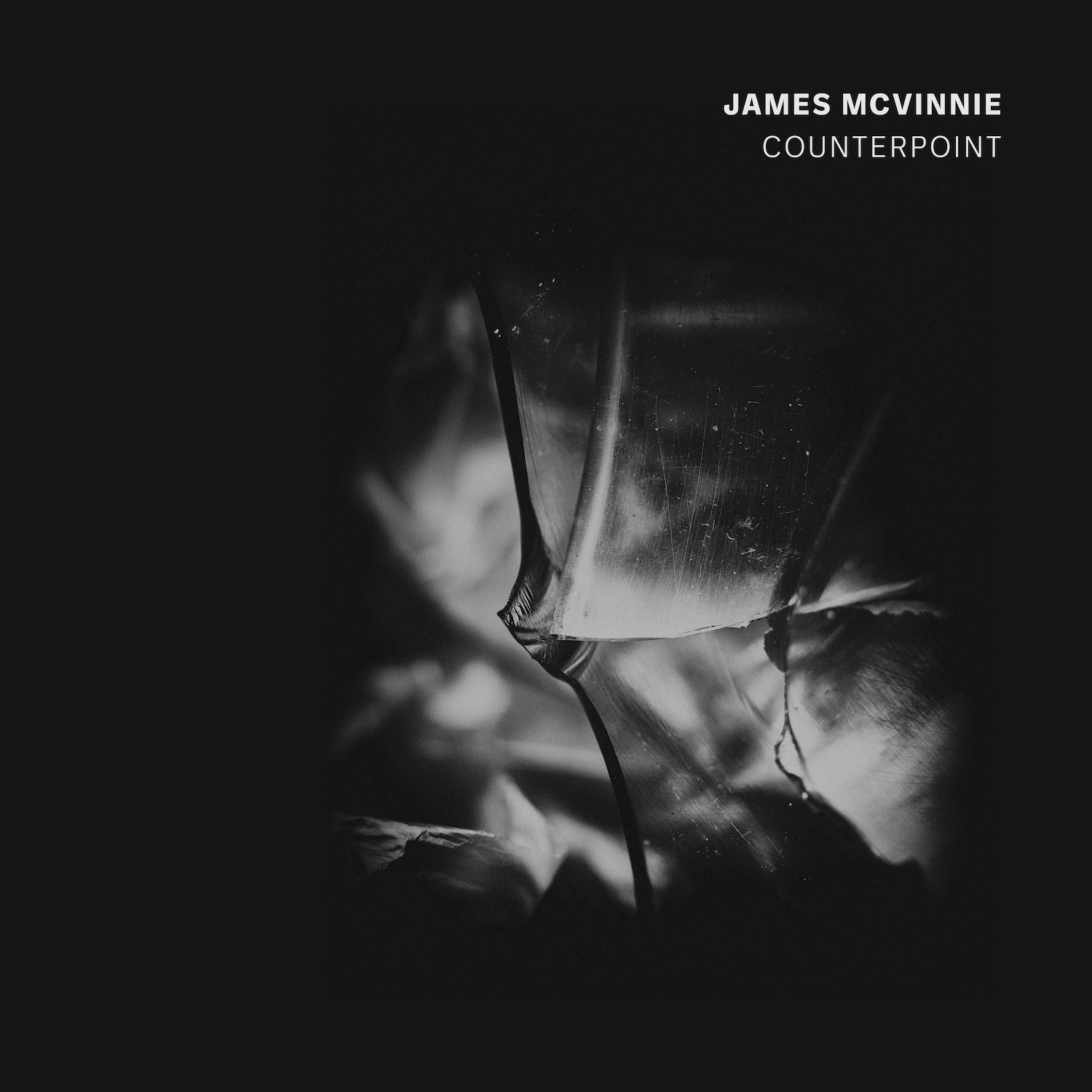The Breakdown
What is it about the tags neo-classical or contemporary-classical that often brings out that immediate ‘not for me’ reaction in people? Too much baggage, too many connotations associated with that word to the right of the hyphon. It’s musicians like organist and sound sculptor James McVinnie who can help shift mindsets . He may be an instrumental virtuoso with heavy credentials steeped in church music and the classical tradition but he is also recognised as an essential collaborator for the forward thinking. Not only has he worked with Bryce Dressner and Richard Reed Parry but both Squarepusher/Tom Jenkinson and Nico Muhly chose him as a fellow interpreter when they ventured into the niche world of composing for the organ.
Now comes McVinnie’s fourth album ‘Counterpoint’ marking his return to the eclectic Bedroom Community label and finding him very much at the controls of his own project. As with so much music released recently the record is a consequence of the suspended lock down months, when McVinnie had time to reflect and regather musically. Revisiting the work of minimalist Philip Glass, territory that he had last explored 2018’s ‘The Grid’, McVinnie developed two new interpretations from the American composer’s late sixties output, ‘Music In Fifths’ and ‘Music In A Contrary Motion’. At the same time he found himself returning to music hard wired into his musical DNA, the last fugues written by J.S. Bach over 250 years ago. ‘Counterpoint’ represents the consequence of having space to explore these works in tandem and discover their shared chemistry.
The resulting album could have been an indulgent exercise in academic ‘compare and contrast’ but the sequencing is so carefully curated that ‘Counterpoint’ delivers a rich, cohesive listening experience. McVinnie lays down the record’s foundation with three succinct interpretations taken from Bach’s unfinished compositional collection ‘The Art Of Fugue’ and played on the Metzler organ at Trinity College Cambridge. Startlingly full on and dizzyingly complex, these opening tracks defy being called tunes. In each short piece, seemingly simple melody lines build and overlay, snaking and reeling around each other, animated and excitable but never getting tangled. It’s a sound that is ceremonial and processional but not stuck in time. The bewildering code of notes in ‘Contrapunctus IX’ represents masterful high level programing inked onto manuscript which gets ingeniously re-booted here, all in a hectic three-minute cycle. Roll over Richard James!
Set against such jaw-dropping one-take live recordings, the longer less frenetic Philip Glass compositions could lose the impetus ‘Counterpoint’ is given by these opening pieces. However McVinnie’s intuitive assemblage of the organ samples from his Trinity recordings where he introduces subtly shifting timbres, nimble pulses and sensitive choral voicings, ensure that your attention doesn’t waiver. Composed in 1969 and marking a return to stark, disciplined repetition, Glass’s ‘Music in Fifths’ has seen many interpretations from solo piano to unconventional ensembles but McVinnie’s re-imagining provides a different almost electronica-derived route into this seminal piece. There is a moment where the sound sequence is delicately distorted to almost nothing then gradually restored to full semaphore flow that is just stunning.
As a double album extending over seventy minutes ‘Counterpoint’ needs the balance provided by deep understanding to sustain it. This is where McVinnie brings his natural connection with the music of both composers into play. Before the second Glass composition he returns to the Bach fugues for a series that starts playfully enough with the nimble, airy ‘Canon Alla Otava’ but then veers somewhere much darker. To the uniformed the titles may seem innocuous, Canon and Prelude in C Minor (BMV 546i /546ii) but be warned. These are booming, sonorous proclamations of monstrous proportions where the Trinity organ seems to take on a life of its own as McVinnie strains to keep things in check. Doom metal and Sunn O))) devotees should treat themselves and dive in.
After that power play the second Glass piece ‘Music in Contrary Motion’ restores calm with melodic steadiness and shimmering celestial tingles, all grounded with some resonant bass note anchorage. This musical form may have become overfamiliar with the wallpaper use in the nature doc and horror movie but McVinnie, with his careful accenting and soulful modulations, reminds us of the infinite possibilities of such repetitive structures.
Fittingly ‘Counterpoint’ closes with a grandiose finale, Bach’s ‘Countrapunctus XII’. Hymnal and cathedral-bound, the sweeping momentum of the opening sections give way to rapid fugue patterns that crash and snatch at each other. As the rush reaches a peak there is an audacious stop before a tender, stripped back melody takes the record to a reflective conclusion.
There’s no doubt that James McVinnie’s ‘Counterpoint’ has an intellectual element to it. There is much to wonder at in the contrasts and similarities between the music of Bach and Glass, but that’s only part of the album’s impact. Here is a recording that has nothing to do with enticing people back to the classics. McVinnie’s music on ‘Counterpoint’ draws from the past in order to take anyone who listens somewhere daringly new…and that defines neo-classical for you.
James McVinnie’s ‘Counterpoint’ is available from Bedroom Community at:














No Comment